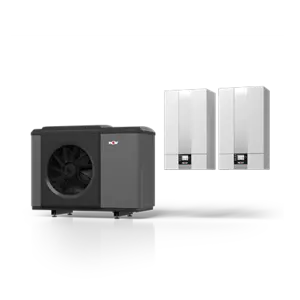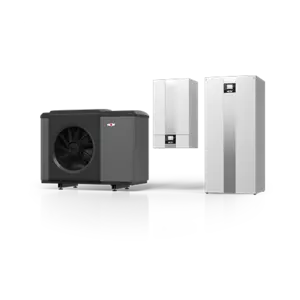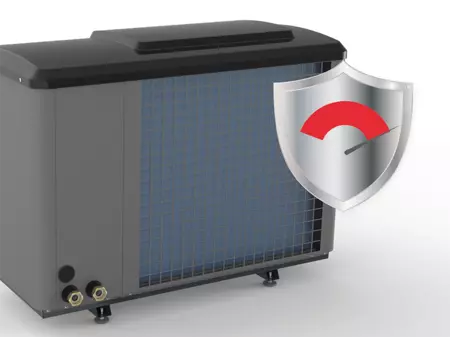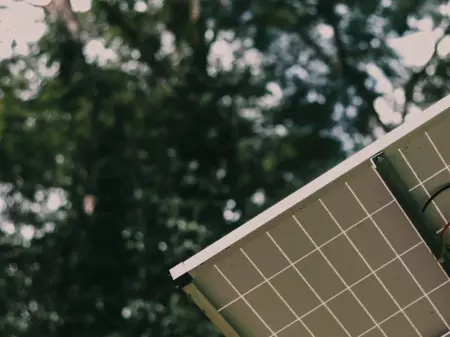Condensing technology extracts heat from the exhaust gas, especially from the water vapour present in this gas. As a result, condensing boilers utilise a particularly high share of the heating energy available in the fuel. If you have an older appliance without condensing technology, a replacement is definitely worthwhile.
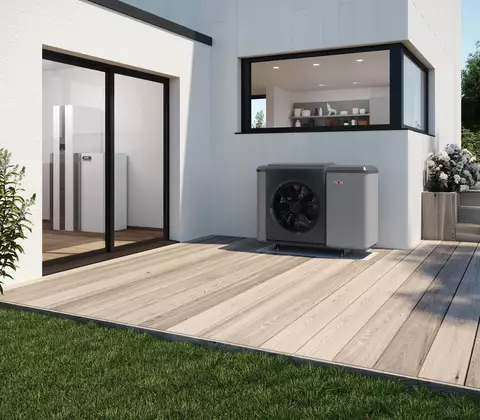
Understanding hybrid heating
Advantages of combining multiple heating systems
Reliable, energy-efficient and fit for the future – a hybrid solution combines all of these advantages. Here we explain how a hybrid heating system functions and which combinations are possible.
Table of contents
Hybrid heating is very versatile
Hybrid solutions are increasingly popular, particularly when modernising the heating system in older buildings but also in new constructions. Their advantage lies in the more environmentally friendly, efficient and flexible production of heat, which is why the state rewards these setups with large subsidies. The options for combinations are diverse and depend on your building.
Hybrid heating systems with solar thermal technology
A solar thermal system from WOLF produces heat from the incident solar radiation. It transfers the heat to the heating system for heating and for domestic hot water. It is stored in a buffer cylinder to ensure that heat is available even at night and on cloudy days.
When combining solar with fossil fuels like gas or oil, the solar thermal system covers the base load. With this hybrid variant, the gas or oil heating system only switches on when more heat is needed. This is generally only the case in winter. Gas hybrid heating solutions with solar heat are particularly popular.
Our experts will advise you on the purchase of your heating system!
You want to buy a new heating system? Our experts will answer all your questions.
03. Hybrid heating systems in existing and new buildings
Hybrid heating in existing buildings
Owners of detached houses can benefit in particular from the advantages of a hybrid heating solution when modernising their heating setup since they can continue to use a portion of their existing heating system.
In some cases, they can even continue to use their existing gas or oil boiler and simply supplement this with a heat generator based on renewable energy.
If your boiler is already more than 15 years old, however, it is advisable to replace it with a condensing boiler that can get the most heat out of the expensive fuel.
This will cut CO2 emissions by up to 30% and save as much as 35% in heating costs. With the modern WOLF control unit, you can configure your hybrid heating system to emit minimum amounts of CO2 while saving as much as possible on heating costs.
Gas and oil hybrid heating systems are typical in older buildings for the reasons given above. Nevertheless, a hybrid heating setup consisting of only a heat pump and solar thermal system can be realized in existing buildings as well. In this case, however, the costs of additional insulation and replacing radiators with panel heating (such as underfloor heating) will be higher.
Hybrid heating in new buildings
Hybrid heating is particularly advantageous in newly constructed multi-unit buildings. As the builder, you can satisfy the statutory requirement to use renewable energy for a portion of the heating by installing a heat pump. With an additional condensing boiler, such as a modern gas condensing boiler, you will also enjoy absolutely reliable operation.
A well-insulated building is essential for combining a heat pump with solar thermal technology. This solution is therefore primarily suited for new buildings.
With a hybrid heating system, you make yourself less dependent on the oil or gas price in the long run. Thanks to lucrative subsidies and the energy savings, the additional expense of a hybrid solution can be recouped in just a few years.
Frequently asked questions about hybrid heating
- In dual alternative operation, the heat pump alone provides the heat when temperatures outside are moderate. If the temperature falls below the so-called dual mode point, the hybrid heating system switches off the heat pump and the condensing boiler takes over the heating. This solution is the simplest, but generally the least efficient and least environmentally friendly.
- In dual parallel operation, the heat pump always runs and the fossil heat generator sometimes runs at the same time.
- In dual semi-parallel operation, the heat pump and condensing boiler run together at moderate outside temperatures. If the temperature is mild, only the heat pump runs. If it is very cold, only the gas heating is used.
With older gas heating systems, conversion to a gas hybrid setup is somewhat more difficult. Newer condensing boilers are often already fitted with a compatible control unit. In this case, it is very easy. In other words, it is simpler if you replace the old gas boiler at the same time and supplement it with renewable energies.
The subsidies offered for such a new gas hybrid heating system are also more attractive. If you convert to gas hybrid heating within two years of buying the gas condensing boiler, however, you will still receive the BEG subsidy (“renewable ready”).
Compared with gas heating, oil emits more CO2. For this reason, the German federal government has decided that oil boilers should no longer be used for heating over the long term. oil heating systems are therefore not eligible for subsidies, even as part of a hybrid system.
A buffer cylinder is a central element of a hybrid heating setup. It ensures that all parts of the hybrid system function optimally and independently of each other. It also offers the greatest flexibility when replacing a heating generator or adding a new one.
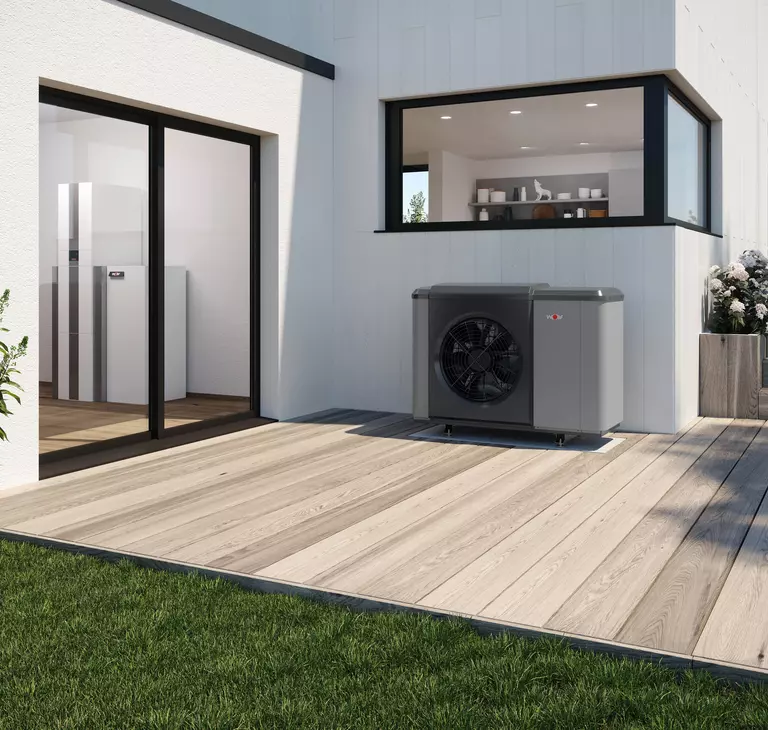
Our recommendation: The WOLF CHT-Monoblock
50 years of experience have gone into the development and design of our top seller.
